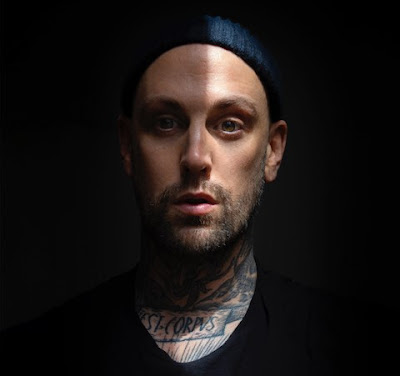Florian Hetz started his work life producing opera and dance theatre in Germany. As a severe encephalitis put an abrupt end to his professional life he started to keep a visual diary to counteract potential memory loss as an after-effect of the brain inflammation. He documented his daily life, friends and lovers during recovery until his photographic process gradually shifted to creating photos that were mostly based on his memories.
Much of the Berlin photographer’s work references moments of a pre-coming out time. Exciting and disturbing moments that many queer people experience at young ages without knowing how to read or act on them, while trying to manoeuvre in a straight world.
By closing in on those seemingly normal every day moments he elevates them and translates them into his very own visceral language.
1. Tell us something about yourself and your journey.
I was born in Frankfurt and my parents moved us to the countryside when I was little. My way of escapism was mainly reading, drawing, watching old Hollywood movies and counting days until I could escape.
I had a huge collection of book, magazines and photo books. And unconsciously I was studying already photographers. As soon as I finished school I moved to the city and since then have lived in many different cities and countries. But my home is Berlin.
2. How did you get into photography?
I had a very severe brain inflammation that left me with a frightening memory loss. In order to fight the memory loss, I started to take little photos of my daily life, to help me remember.
A little bit like a photo diary. This practice conditioned me to carry a little camera with me at all times. And I started to use the camera more and more creatively, rather than only documenting my life. In the beginning I mostly took photos of my friends and lovers, and eventually started to work with sitters that I didn´t know.
3. What is the unique concept behind your photography?
The close ups of body parts started as part of me trying to remember what excited me when I was a teenager. The way we look at bodies in that age is different. There is an excitement and confusion when it comes to desire, little things already fascinate us.
Other than straight people, LGBTQIA people have to hide their desire, especially in a young age. That secretiveness creates its own visual language that can be understood and read by other queer people easily. But for many straight people it will often only read as an aesthetic choice.
4. What are the details that makes a photograph best ?
For me personally it is when I can see someones individual handwriting in their photography. Too often people are trying to imitate or recreate what is popular instead of developing their own artistic language.
5. Your photos seems like an artwork, can you explain your art?
By zooming in on parts of the body, I take away our preconceived ideas of what we think something needs to look like. Our brain always tries to create a whole picture by adding things that are not there. But by isolating things, we are able to look at detail as its own entity.
6. What photographers influences you and how do you incorporate their techniques into your photographs?
The photograhers that influenced me as a teenager were the big Hollywood studio photographers like Clarence Sinclair Bull or George Hurrell. And I am still inspired by the way they were using light.
Other photographers I really liked when I was young were Irving Penn and of course Peter Hujar. Mapplethorpe influenced me in the sense that he was the first photographer i was aware of, who showed explicit sexuality in a gallery/art context.
7. What advice would you give to aspiring photographers ?
Don´t constantly look left and right. Don't copy others, but concentrate on your own vision and take your time to develop that. Create for yourself and not for others.
8. Which is your favourite book and why?
At the moment it is “On earth we’re briefly gorgeous” by Ocean Vuong. I read it the first time in 2020 before the death of my dad, and just started reading it again. It´s a letter to a parent, a book full of love, pain, and poetry.
And both times reading it, it gave me something completely different. I have the feeling, it will be a book that I will read in different phases of my life again, and each time it will resonate with another part of me.
Interviewed By - Anshika Maurya










0 Comments